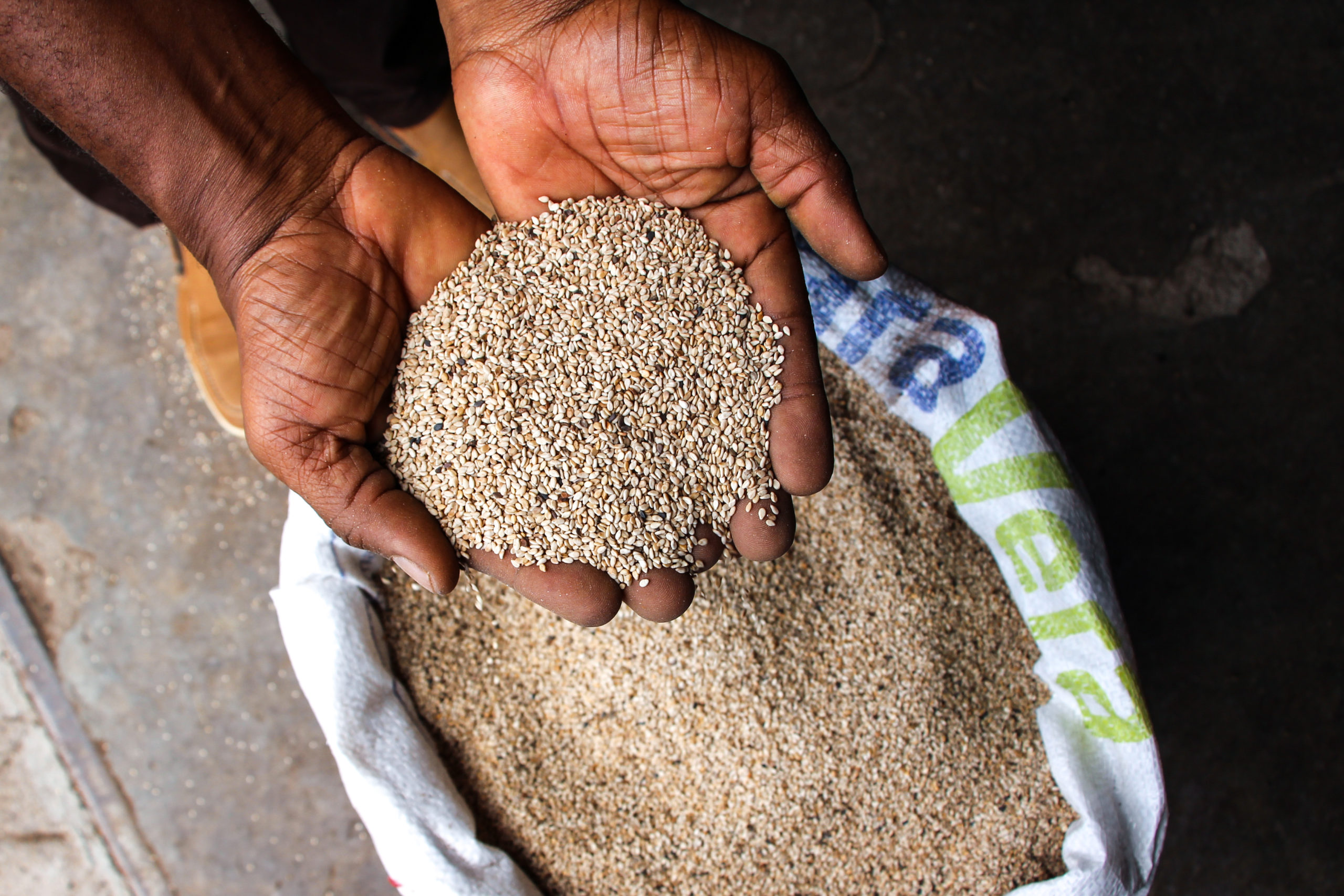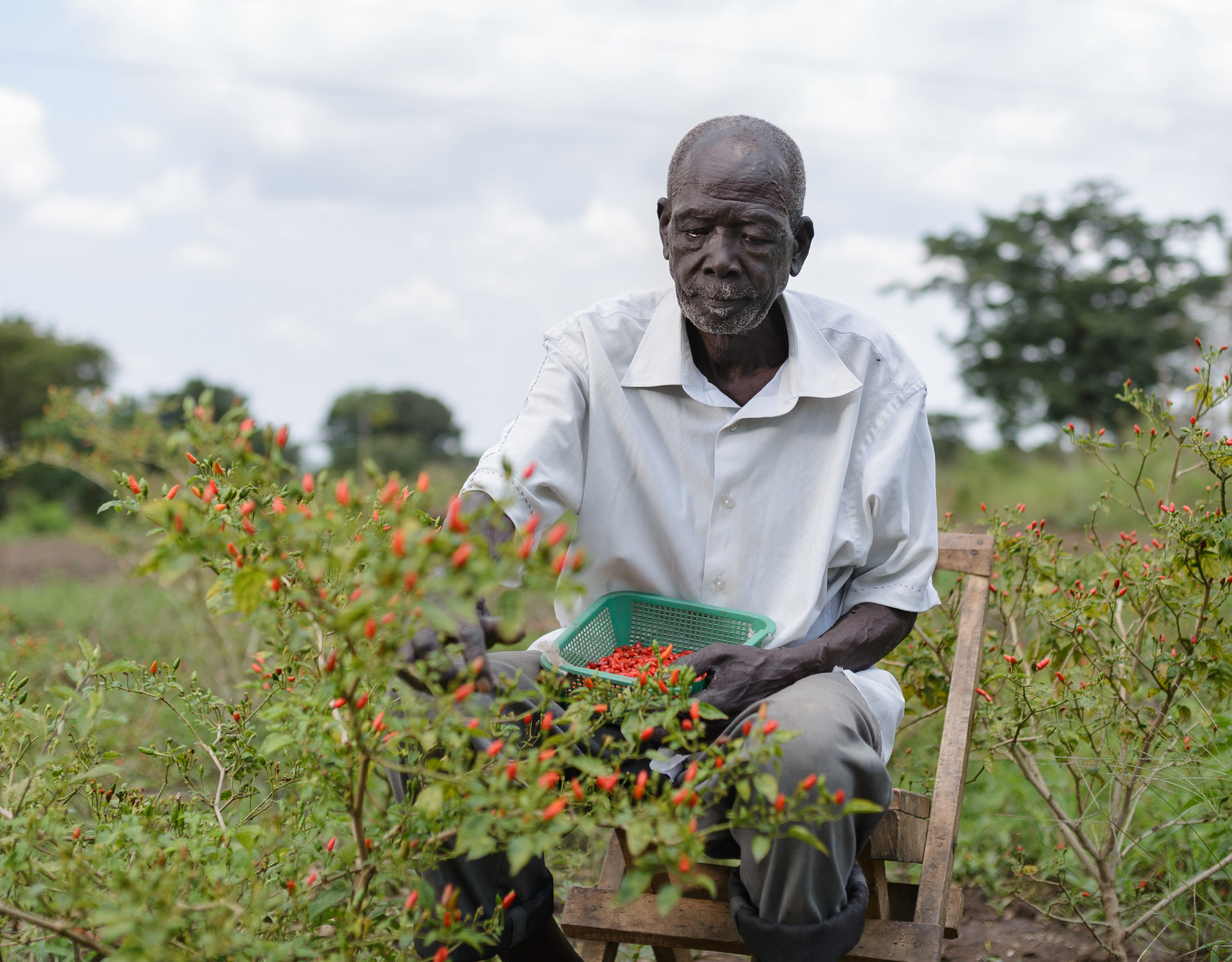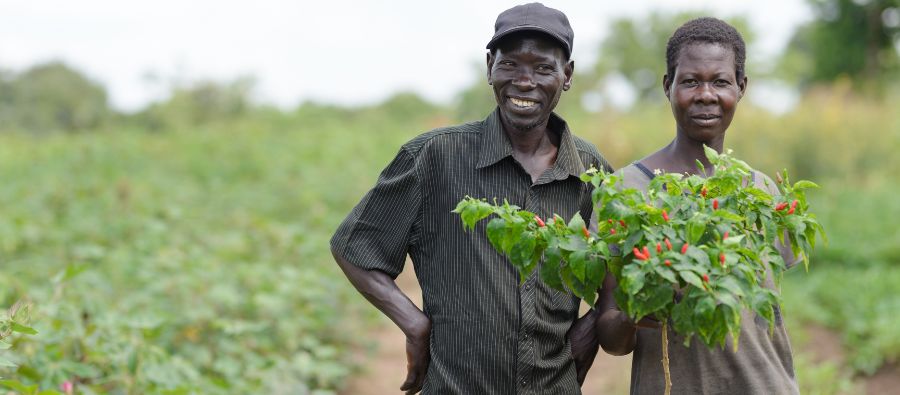Anastasia Mbatia, Senior Technical Manager for Agriculture, Farm Africa and author of Quality Declared Seed, unpacks how seed systems can be used to provide farmers with quality inputs, ultimately improving food security and livelihoods.
Crop productivity in eastern Africa remains far lower than what it could be. Climate change and lack of investment have significant impacts, but seed systems are also majorly preventing farmers from growing to their full potential.
Seed systems refer to the network of activities contributing to seed production and delivery to farmers. Formal seed systems are in large part commercial and can come from research institutions, governments and seed companies. They ensure quality since production, processing and marketing are all subject to regulation, inspection and certification. Informal seed systems, on the other hand, comprise seed sold at local markets or simply those exchanged between family and friends.
In eastern Africa, formal and informal seed systems impact farmers’ access to and quality of seed. Informal systems offer seed much more readily, but the quality can vary hugely.
Improved seeds – which are typically distributed through formal systems – are bred to be higher quality and adaptive to climate extremes. They help farmers produce greater yields compared to traditional, recycled seed, but high costs and distribution disparities mean that this type of seed is unattainable for many. As a result, less than 20 per cent of Africa’s farmed land is cultivated with improved seed varieties.
This all points to a need for a Quality-Declared Seed (QDS) system.

Photo credit: Farm Africa
Bridging quality and access
QDS systems were first introduced in the late 1990s to increase access to seed in emergencies. This type of system produces seed that meets the minimum standard of quality but does not require formal inspection and certification. By integrating the formal and informal seed processes, QDS can increase smallholder farmers’ access to locally accessible and affordable high-yielding seed varieties, whilst reducing the burden on government agencies.
Quality-Declared Seed in action
A new report from Farm Africa highlights three projects promoting access to QDS in Ethiopia, Uganda and Tanzania. In all three projects, yields and productivity improved because of QDS system adoption.
For example, as part of the Growth for the Future project funded by Sida, Farm Africa measured the impact of using QDS on more than 1,500 smallholder farmers’ productivity. In Ethiopia’s Southern Nations, Nationalities and People’s Region, improved seed directly resulted in improved yields. Specifically, the average yield of haricot beans per unit area (kg/hectare) increased threefold. This, in turn, led to a household income increase of 97 per cent.
Increased yields will also help countries bridge the gap between supply and demand. In Tanzania, for instance, 80 per cent of sesame seed demand is met through informal systems, hindering access. Farm Africa’s analysis shows that less than 10 per cent of Tanzania’s demand for sesame seed was being met. Switching to a QDS system would rapidly increase the production of sesame in Tanzania and open up lucrative markets to smallholder farmers.
In addition, QDS systems better support female farmers. Formal seed systems tend to prioritise higher-value cash crops, which are largely produced by men. Women, on the other hand, are more concentrated in informal or community-based seed systems. This often leaves them unable to access quality seed. Instead, QDS systems recognise consumer needs and develop local delivery channels, increasing benefits to female farmers compared to other seed systems.

Photo credit: Farm Africa
Call to action for seed systems
Stringent rules governing the seed industry foster high standards but lower access to seed. However, governments can create structures that make high-quality seed more available to smallholder farmers. To ensure that the benefits of QDS are enjoyed widely, several interventions can be implemented.
Firstly, distribution must be secured. As evidenced by Farm Africa’s interventions in Tanzania and Ethiopia, community-based organisations (CBOs) and Agriculture Marketing Cooperative Societies (AMCOS) are efficient in collecting and distributing QDS to farmers. Contractual agreements between seed producers, CBOs and AMCOS create a supply chain that can track seeds back to the breeder, ensuring high-quality seed is accessible to farmers.
Secondly, foundation seed access – an offspring of a breeder seed that maintains an acceptable level of genetic purity – is critical to bridge the seed availability gap and enable producers to multiply crop production. Private sector involvement and investment are key to improving access as they can increase the quantity of seed available. Presently, seed breeding is conducted largely by the public sector. In eastern Africa, specifically, government agencies dominate areas of seed research, such as seed breeding.
Thirdly, incentives need to be put in place for seed producers to ensure high-quality seed is not repurposed as grain. Consuming high-quality seed instead of planting can have strong food security repercussions since yields in the following seasons will be lower.
A QDS system can level the playing field and help farmers grow more high-quality crops year-round. Not only will this help secure their incomes, but it will also strengthen food security. At a time when climate change, instability and market fluctuations all threaten farmers’ productivity, simplifying access to quality seed is vital to ensure they can continue to grow and sell high-quality crops.
To find out more, read Quality Declared Seed, available on Farm Africa’s website.
Header photo credit: Farm Africa



